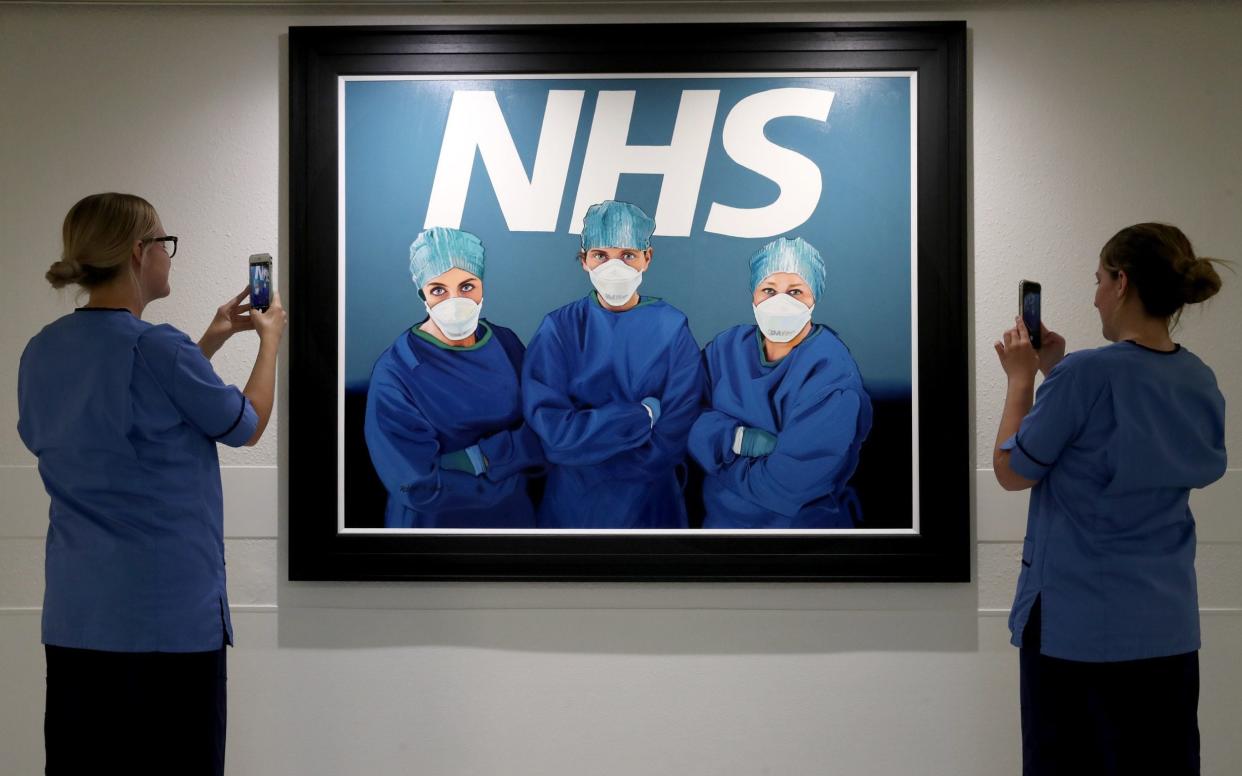NHS staff took more than 500,000 sick days due to mental health issues in May


NHS staff took more than half a million sick days because of mental health issues in May, during the peak of the coronavirus pandemic.
NHS Digital released data on Thursday that detailed sickness absence rates for May. It showed that the overall sickness absence rate for England was 4.7 per cent, down from 6.2 per cent in April but slightly higher than the May 2019 figure of four per cent.
The most commonly reported reasons for sick days during this period were anxiety, stress, depression or another psychiatric illness.
In total, absence for mental health reasons accounted for 510,281 full-time equivalent days lost and 28.3 per cent of all sickness absences in May, up from 20.9 per cent in April.
Last month, doctors' and nursing unions said the current levels of pandemic-related stress were unsustainable for staff amid increasing anxiety over a second coronavirus wave.
Mike Adams, the England director of the Royal College of Nursing, warned that "there is a level of exhaustion, both physically and mentally."
Mr Adams said: "I know lots of nurses who are exhausted, and they were in a stressful environment anyway – but now many have been redeployed to areas they've never worked in before, they're wearing full PPE and lots have seen more death than is ever reasonable on any one person."
Researchers also analysed the data by region, finding that the North-West had reported the highest sickness absence rate in May at 5.6 per cent, while in April the region with the highest rate was London (7.2 per cent).
Meanwhile, the South-West remained unchanged as the region reporting the lowest sickness absence rate in May at 3.8 per cent, down from 4.5 per cent in April.
Ambulance trusts had the highest sickness absence rate in May at 5.3 per cent, down from 7.3 per cent in April, while clinical commissioning groups had the lowest sickness absence rate at 1.8 per cent.
NHS Digital also provided a breakdown of sickness absence rates among staff groups. They found that support workers for doctors, nurses and midwives reported the highest sickness absence rate in May at 6.7 per cent, down from 8.5 per cent in April, while support workers for ambulance staff had the highest rate in April at 8.6 per cent.
Meanwhile, hospital practitioners and clinical assistants had the lowest rate in May at 0.1 per cent, down from 0.9 per cent in April.
In August, NHS England released data showing that the NHS lost 3.5 million days of work due to mental health-related sickness from March 2019 to February this year, a significant increase from previous years suggesting a growing trend that predates the pandemic.
A Department of Health and Social Care spokesman said: "Supporting the mental health and well-being of our staff is a top priority, and we understand the huge pressures they and their families face, particularly during this unprecedented pandemic.
"The NHS has increased its health and well-being support for staff and a range of services are available, including a mental health hotline, practical support, financial advice, and specialist bereavement and psychological support. We would urge anyone struggling to come forward and speak to a colleague, their occupational health team, or to call the helpline so that they can get the help they need."

